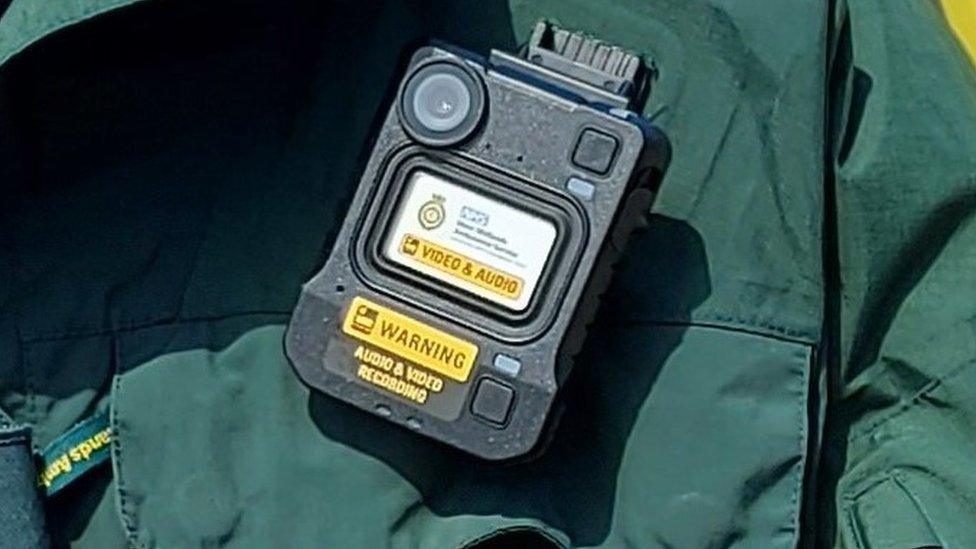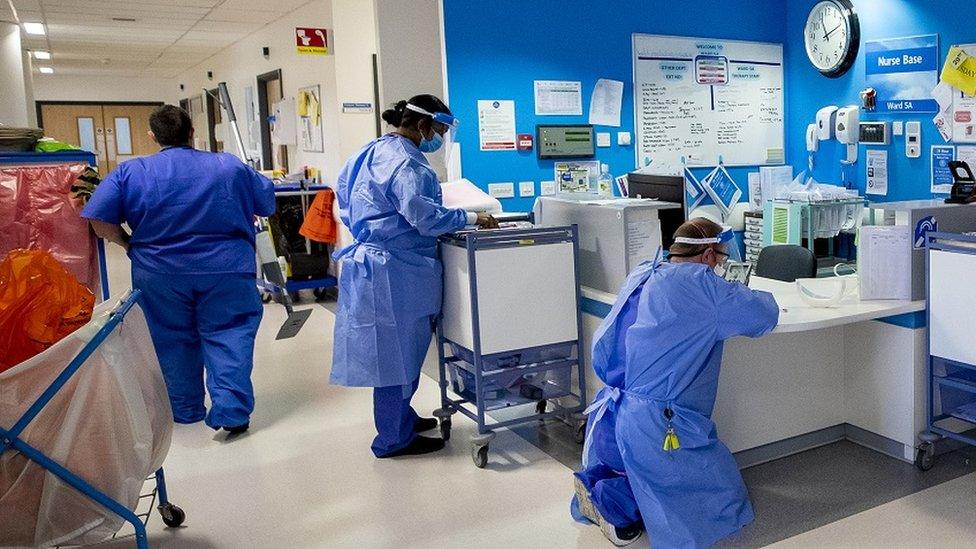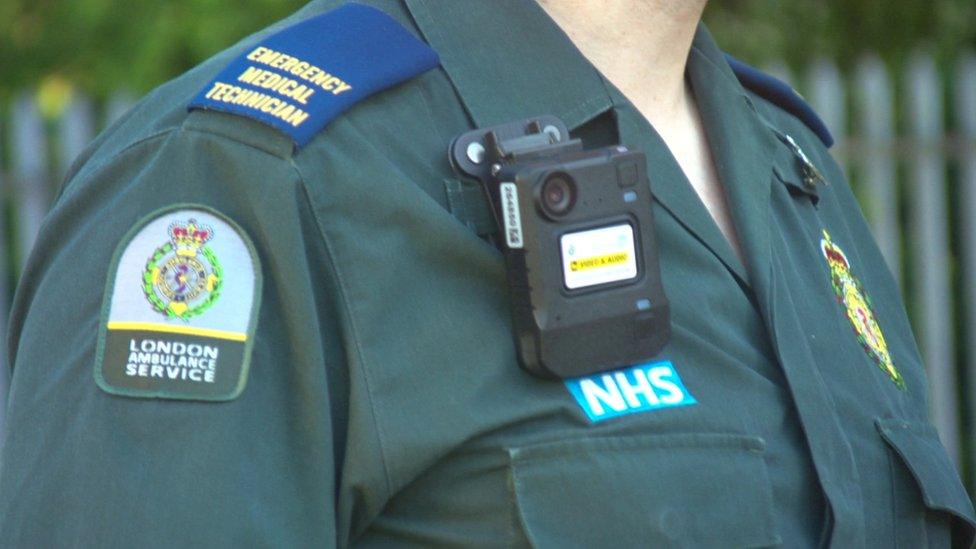Body-worn cameras to be trialled by Northern Ireland Ambulance staff
- Published

The Northern Ireland Ambulance Service hopes the body-worn cameras will deter violence against staff
Some Northern Ireland Ambulance Service (NIAS) staff will trial body-worn cameras after a rise in assaults.
Total attacks on staff rose from 451 to 603 a year between 2016-17 and 2020-21 while assaults with weapons rose from four to 46 in the same period.
A pilot will be run out of Bridge End ambulance station in east Belfast, as part of a wider public consultation.
Mark Cochrane from NIAS said: "It is unfortunate that the actions of a small few have brought us to this point."
He said it was hoped the cameras would deter violence and support prosecutions.
"The reason we have chosen Bridge End as our pilot station is that the Belfast area sees about 60% of all incidents of violence and aggression towards our staff," he said.
"So it's slightly disproportionate there compared to other areas.
"But the intention is once we complete the pilot and the public consultation that's now ongoing, is to roll the cameras out across the entire service."
Over a five-year period, the NIAS said staff were physically assaulted with items including a knuckle-duster, syringe, sledgehammer, snooker cue and balls, a bag of cement and a tomahawk hatchet.

Body-worn cameras have been trialled among other ambulance services in the UK
Mr Cochrane, assistant director of operations with NIAS, said in recent years the service had witnessed "increased levels of aggression, violence and harm caused to our staff while on duty".
"This abuse is unacceptable and unfortunately despite efforts to curb violence and aggression against NIAS staff, incidents have continued to increase," he added.
"It has substantial and long-term impacts on the physical and psychological wellbeing of staff.
"This ongoing issue has serious, long-term impacts on the trust's ability and capacity to deliver its services.
"It can cause major impediments to the urgent provision of immediate care by NIAS staff in emergency scenarios."
'Abuse not part of our job'
Mr Cochrane said he understood there may be some reluctance among staff to use cameras at first and from patients about what may be recorded.
He said he wanted to provide an assurance that footage was for two reasons only - deterring violence and supporting prosecutions.
He also said any information collected would be "stored in such a way that it's only discoverable by a very limited number of people".
"After significant consideration and engagement with staff, unions, and partner agencies, NIAS believes in principle that the introduction of body-worn video is a proportionate and reasonable proposal to help reduce harm to staff, and to assist in due process investigation and, if necessary, prosecution of offenders. "
- Published15 December 2021

- Published2 June 2021
